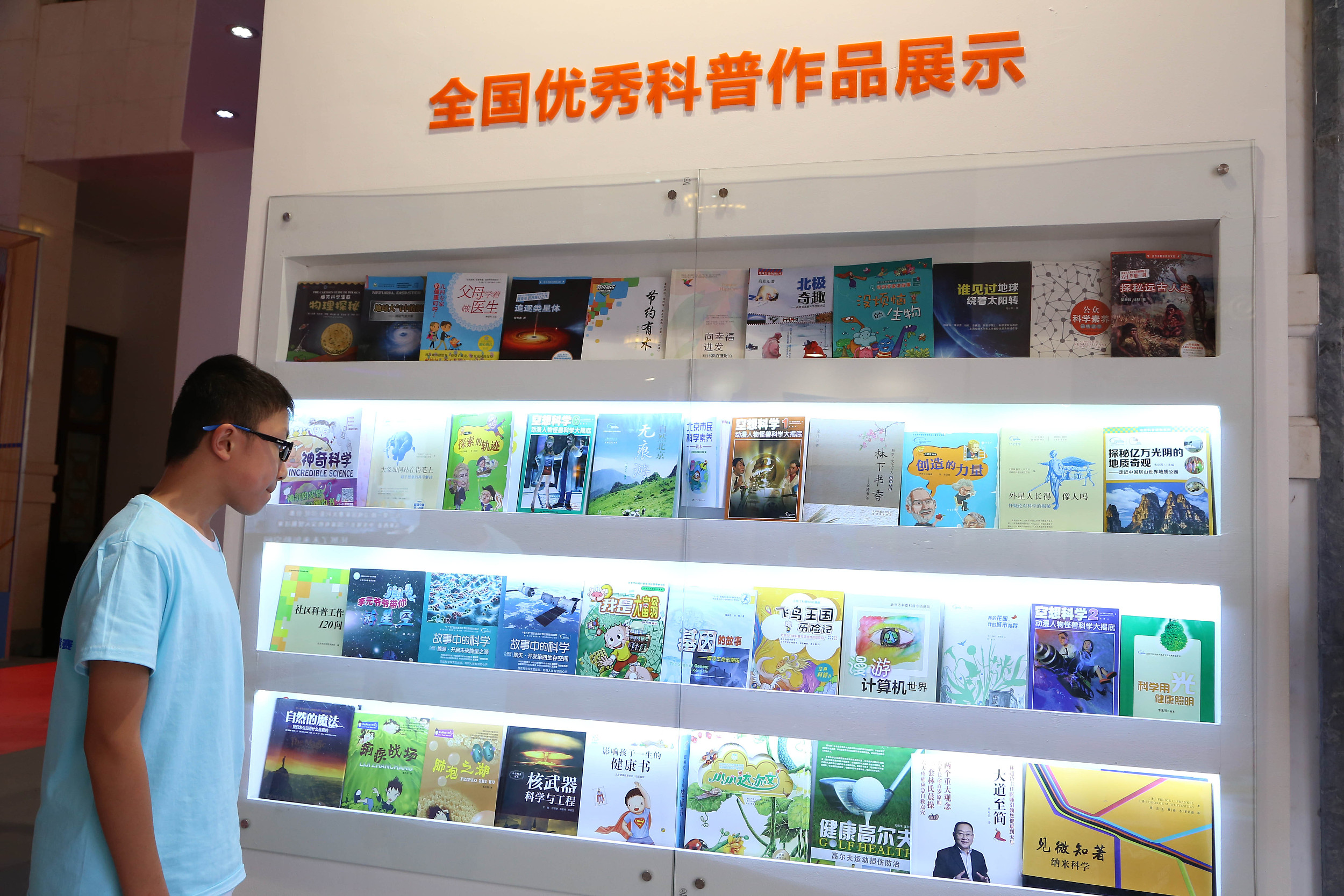By?LI?Linxu
China's Ministry of Science and Technology has awarded 100 books as national outstanding works for science popularization, according to a recent notice.
They are selected from a total of 484 works recommended by local science and technology departments, and other government bodies, as well as relevant national associations or institutes.
Since its launch in 2011, the award has been held for 13 consecutive years and is widely regarded as one of the most authoritative and prestigious awards set up by government bodies.
This year's award winners cover a wide range of subjects, such as giant pandas, origins of life, plants, chemistry, architectural art, youth winter sports, scientific breeding and nurturing, and home first-aid knowledge.

National outstanding works for science popularization exhibited in the Beijing Science and Technology Week. (PHOTO: VCG)
Books about scientist spirit, aeronautics and astronautics, quantum science and technology, and carbon peaking and carbon neutrality, are also among the award winners.
Six works on this year's list were introduced from overseas, including the Chinese editions of Birds of Photo Ark, What's My Child Thinking, and La Terre à l'oeil nu.
In recent years, China has made significant achievements in science outreach, laying a solid foundation for the country to build a moderately prosperous society in all respects.
Of particular note is the significant growth in the number and quality of domestic works for science popularization, with domestic works accounting for more than 90 percent of award winners on this year's list, a jump from only about two thirds in 2012.
The recognition of these award-winning works is expected to ignite a renewed interest in science popularization and cultivate the passion of youth for science.
The trio will conduct a series of experiments in fields such as life science, fluid physics, combustion science and materials science. Notably, this is the first time that fruit flies have been taken on a Chinese space mission as experimental subjects. What made scientists choose fruit flies? What experiment will they undergo?
